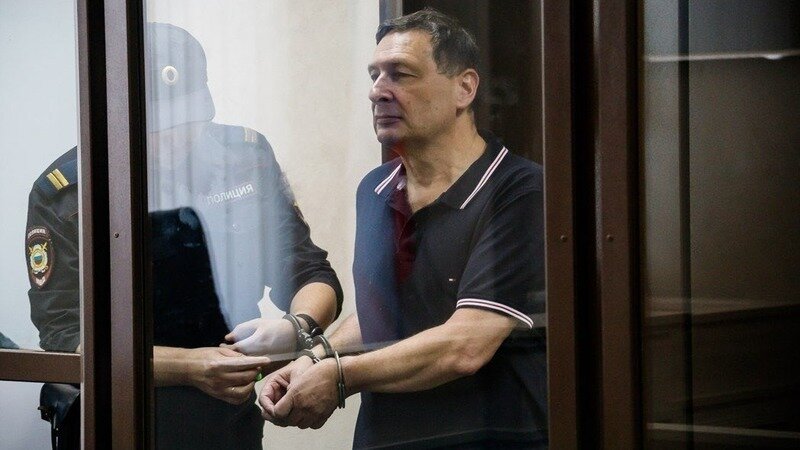Boris Kagarlitsky
Posted February 6, 2025

THIS MATERIAL (INFORMATION) WAS PRODUCED, DISTRIBUTED AND (OR) SENT BY FOREIGN AGENT BORIS YULIEVICH KAGARLITSKY, OR CONCERNING THE ACTIVITIES OF FOREIGN AGENT BORIS YULIEVICH KAGARLITSKY.*
A NEW U.S. Administration is always a global-level event. The world anticipated George W. Bush’s arrival at the White House with fears that came to be confirmed, while Barack Obama’s election brought hopes that didn’t pay off. But this is for the first time ever that the new boss of the Oval office is seen with such perplexity and confusion. No one quite knows what to expect of Trump’s presidency. But that’s rather natural, because he doesn’t know it himself.
This eccentric elderly billionaire comes back to power with a set of populist slogans that sound threatening enough to scare American liberals, but give absolutely no clue as to priorities and strategies of Trump’s foreign policy. Yes, Trump intends to fight an influx of immigrants from Latin America, as well as Chinese competition in the domestic and global markets. But these priorities are not enough, obviously, to build upon them policies of the global hegemon and a superpower that the United States remains.
The issue is that Trump’s election came along with a unique ideological crisis, in which all the usual principles that American politics was based on are put in question. For decades there was bipartisan consensus in Washington regarding basic values and priorities of foreign policy. Some arguments did take place, quite heated ones, but they rather regarded tactical questions than strategic ones.
Strategic principles that successive administrations followed (regarding Europe, the USSR, Russia, Latin America, Middle East, etc) were perceived as the actual reflection of national interests. And what’s important, not only the governing elite, but also American society shared this vision.
The Left were the exception. They harshly criticized American involvement in any part of the world. But the trouble was that they criticized US policy from its victims’ point of view, sort of from the outside, and didn’t offer their own alternative vision of national interests, nor a strategy that could be implemented. As a result the Left’s position only marginalized them more and had zero effect on discussing foreign policies.
The Trump situation is something new. He publicly questions accepted strategic principles (for instance, North Atlantic solidarity), but doesn’t offer anything coherent in return. He’s alien both to bourgeois morality of the government elite and critical morality of the Left. America must be great again, but it’s unclear what this slogan really means: striving for the state’s greatness or just having a great time.
How will U.S. foreign policy change in practical terms? As strange as it seems, changes might turn out not so significant. In a situation when goals, values and priorities seem unclear, the State Department’s apparatus and the Pentagon, as any bureaucracy, will act by inertia. There might be some curveballs caused by personal interference of the absolutely incompetent president. But it’s more likely that the resulting political course will be steered in a usual fashion.
Does this mean that the uncertainty brought on by Trump will not affect international relations? No, it will, and quite significantly. But it’ll affect not so much the actions of the United States as other actors’ behavior.
In times of uncertainty some become highly cautious, others try testing boundaries, others again seek to establish their own rules. This is likely to create the conditions for change.
The ceasefire between Israel and Hamas, which is unsatisfactory for both parties, is a direct consequence of this new uncertainty. It’s clear that Israel is afraid that the United States would leave the Middle East, while for islamists that would be a dream scenario, but as different as their approaches are, the two sides of the conflict were forced to act the same.
Hamas leaders choose not to provoke the new administration; better for them to let the conflict fade from memory for now and keep a low profile. Israel, in turn, realizes that if they don’t arrange this present for Trump’s inauguration, the country might fall out of grace with him.
And here go our two hostile parties, negotiating unwillingly, glancing back not as much at each other as at unpredictable Big Brother in Washington, who would presumably enjoy this kind of arrangement.
It’s far from clear that changes will necessarily be for the better, but the spontaneous process of realigning international relations is imminent. However, it is most likely to be just one of the dimensions of the global systemic crisis. And as for the United States, I can’t help but think of a bull in a China shop: even if it stands still, its presence is impossible to ignore.
*Everyone designated as a Foreign Agent has to comply with onerous reporting requirements. Noncompliance can result in steep fines, closure of an organization, as happened to the Russian Left Socialists, and other critical organizations, NGOs and media outlets — or jail. The law keeps getting extended and those who are labeled have to mark all their publications with a lengthy disclaimer in a larger font and in caps, they also have to submit rigorous financial reports to the Justice Ministry. They are prohibited from most public activities, can’t get paid for journalistic work abroad, receive royalty payments for books, can’t do financial transactions, and more — it is a way to stifle dissent.
Translated by Aleksandra Zobova


Leave a Reply